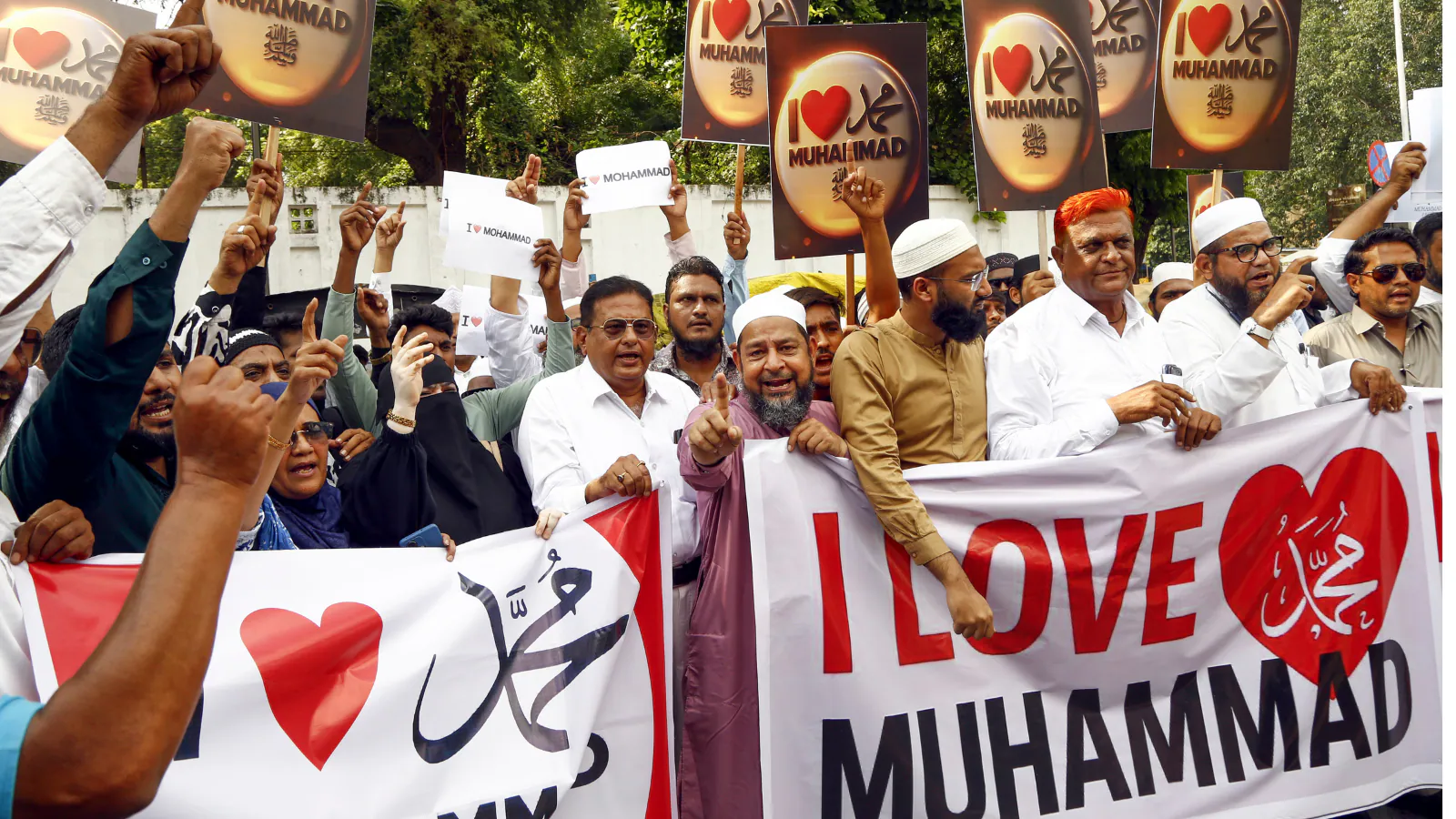By News18,Oliver Fredrick,Pragati Ratti
Copyright news18

What began as a peaceful Milad-un-Nabi procession in Kanpur’s Beconganj area has turned into a flashpoint in Uttar Pradesh, spilling beyond the city’s borders and into several other districts. On the day of the festival, a group of local youths marched with green flags and posters reading “I Love Muhammad”, singing naats and offering sweets to passersby. By evening, several banners with the same message appeared at traffic intersections and on shopfronts across Beconganj and Anwarganj. Locals say the intent was purely devotional. “It was just a way to celebrate Milad with love, not politics,” said Javed Alam, a resident who helped put up the banners.
Trouble began when police personnel allegedly removed some of the banners citing lack of prior permission. Video clips shared on social media showed heated arguments between residents and policemen, with a few scuffles reported. By nightfall, crowds gathered, raising slogans and demanding that the banners be restored. Police used mild force to disperse them, and ten people were detained.
Kanpur Police Commissioner Ramkrishan Yadav defended the action: “The banners were obstructing traffic and had been put up without permission. Our action was aimed at maintaining public order, not hurting sentiments. We appeal to everyone to celebrate peacefully.”
However, local shopkeepers claim the situation escalated because of police “high-handedness.” Rashid Khan, who runs a garment store in Anwarganj, said, “They could have just asked us to shift the boards. Instead, they tore them down publicly. That hurt people’s emotions and led to confrontation.”
Within 48 hours, reports of similar disputes began emerging from other parts of Uttar Pradesh. In Bareilly, police stopped a group from hoisting a large “I Love Muhammad” hoarding near Dargah Ala Hazrat, fearing congestion during Friday prayers. The intervention led to a brief sit-in that was later called off after talks with district officials.
In Sambhal, wall graffiti with the slogan was painted over by municipal workers, triggering late-night demonstrations in Sarai Tareen. Youths gathered outside the police station demanding action against those who erased it.
In Firozabad, the removal of hoardings from a busy chowk led to a face-off between locals and police, forcing the deployment of additional PAC personnel.
Lucknow and Prayagraj have also reported isolated instances of banners appearing in markets, though authorities managed to convince organisers to remove them voluntarily before tensions could rise.
In Bhopal and Jaipur too, small groups have taken to social media to post photos of posters and graffiti bearing the slogan, using hashtags like #ILoveMuhammad and #MuhammadMeriJaan. While no major law-and-order incidents have been reported there yet, police in both cities say they are monitoring the situation.
UP Police headquarters issued a statewide advisory instructing district police chiefs to maintain vigil on public displays that could become flashpoints. A senior officer in Lucknow told News18, “We are not against religious expression, but we must prevent confrontations. Permission is required for any public display — be it ‘I Love Ram’ or ‘I Love Muhammad.’ The same law applies to all.”
Peace committee meetings have been convened in Kanpur, Bareilly, and Sambhal, bringing together clerics, community elders, and local officials to appeal for calm. Religious leaders have condemned the violence while urging the government to respect sentiments. Maulana Sufiyan Nizami of Jamat Raza-e-Mustafa said, “Loving the Prophet is part of our faith. The boards were not political or inflammatory. The administration must act with sensitivity.”
AIMIM president Asaduddin Owaisi framed the issue as one of constitutional rights, writing on X: “Saying ‘I Love Muhammad’ is not a crime. If it is, then I accept any punishment. But Muslims must not be harassed for expressing devotion.”
Some citizens, however, called for restraint. Seema Verma, a Kanpur schoolteacher, said, “Both sides need to calm down. Religious love should not become a reason for clashes. The city cannot afford more tension.”
‘I Love Muhammad’ and ‘Muhammad Meri Jaan’ – the controversy has now become more than just about banners. Political observers say the campaign’s growing visibility and the state’s firm response could turn it into a pre-poll flashpoint ahead of the 2027 Assembly elections.
For now, security has been tightened across sensitive districts, and the Kanpur administration is working to defuse tensions. But the words “I Love Muhammad” continue to appear on banners, walls, and social media feeds.



